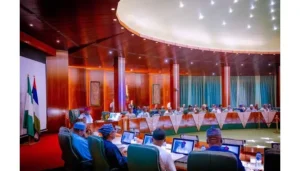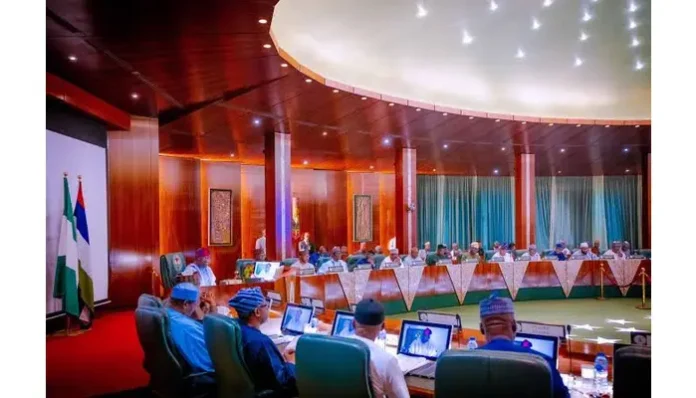Acting Minister of Labour and Employment, Hon. Nkiruika Onyejeocha, emphasized the significance of the Tripartite Committee’s report on the new minimum wage, which was submitted to President Bola Tinubu.
She described the report as a balanced and realistic approach to addressing the challenges faced by Nigeria’s workforce, stressing that its recommendations are actionable reforms aimed at improving labor conditions nationwide.
Speaking at a retreat organized by the National Institute for Legislative and Democratic Studies (NILDS) on ‘Labour reforms and the quest for living wage in Nigeria’, Hon. Onyejeocha reiterated the government’s commitment to transforming the labor landscape.
She highlighted the administration’s goals of ensuring dignity, protection, and fair compensation for every worker, urging lawmakers to enact bills that reflect the needs of the labor force and promote productivity while enforcing penalties for labor law violators.
Hon. Onyejeocha also highlighted the Federal Ministry of Labour and Employment’s Labour and Employment Empowerment Program (LEEP), aimed at enhancing labor compliance and occupational health and safety standards.

Emphasizing the importance of safe working environments, she pledged rigorous enforcement to protect workers from exploitation and injury, particularly in factories and industrial parks critical to Nigeria’s industrial strategy.
Professor Olanrewaju Sulaiman, Director General of NILDS, underscored the need for a realistic national minimum wage reflecting current economic conditions.
He stressed the committee’s role in negotiating a wage rate that supports workers’ living standards and motivates productivity, urging legislative support to enact agreements reached by the tripartite committee.
The retreat, aimed at equipping lawmakers with insights into labor administration and the legislative process concerning the minimum wage, reflects NILDS’ commitment to supporting national development and the agenda of President Bola Tinubu’s administration.
It seeks to foster robust legislative interventions that enhance worker welfare and economic growth amidst Nigeria’s industrial relations challenges.




